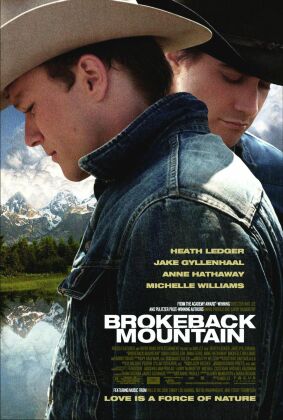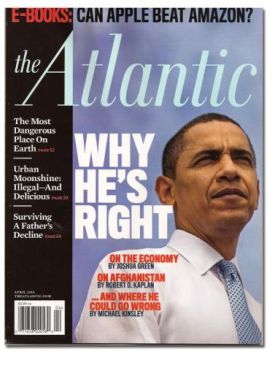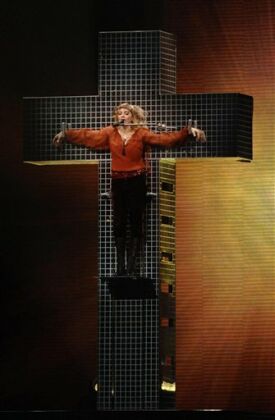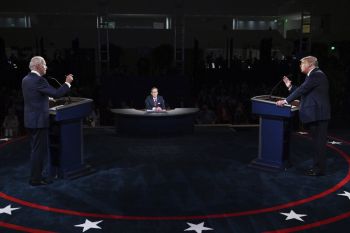Reality show
From The New CriterionThe sub-head to an article in The Wall Street Journal by Holman W. Jenkins, Jr. about the GameStop phenomenon (remember that? — it does seem a long time ago now, doesn’t it?) caught my eye. “Robinhood,” it read, “might remind its customers that stocks are about something real.” Something what? There was that word again. Real. Mr Jenkins was making an excellent point about the GameStop boys, but he was also reminding us of the extent to which “Reality” has lately replaced “Truth” as the gold standard in which the media are dealing every day. Or think they are. On the same day his article appeared, the New York Times’s tech correspondent Kevin Roose published one in that paper headed: “How the Biden Administration Can Help Solve our Reality Crisis.”
I’ll bet you didn’t even know that we had a reality crisis, though readers of The New York Times will not have been surprised to learn of it. The word and its various antonyms and antonymic euphemisms or circumlocutions — “fantasy”, “dreamworld”, “unreality”, “warping reality”, “conspiracy theory” etc — had often been found in its pages in previous weeks, especially since the invasion of the Capitol on January 6th, since the invaders were presumed to have been acting upon the fantasy of a stolen election.
Now, at least in Mr Roose’s view, a full-blown “reality crisis” was upon us. It was said to be “our” crisis, that is, but as so often in The New York Times, there was a certain ambiguity in the use of the first person plural pronouns. When, for example, Nicholas Kristof wrote a few days later that “We Are a Nation of Child Abusers,” the “we” could be presumed to refer to everybody in the country except for the concerned and compassionate folks at The New York Times and their concerned and compassionate allies in government and the media. No “child abusers” they! On the other hand, when Rachel Shteir writes to explain “Why We Can’t Stop Talking About Betty Friedan,” I’m pretty sure that the “we” referred to includes few people outside the premises of the Times itself — and not many inside them either.
But in the case of the alleged “reality crisis” it would seem to be a little strange to suppose that “we” or “our” could be meant to comprise the vast majority of Americans for whom reality remains pretty unproblematical rather than that thin upper crust of the American elite who are prepared to believe anything they read in The New York Times. You’d think, therefore, that “our” reality crisis would belong to the latter, especially since Mr Roose’s first move upon discovering that these unfortunates were suffering from a “reality crisis” was to consult with some reality “experts” in academia, that well-known bastion of reality studies. But then we find that “the experts agreed that before the Biden administration can tackle disinformation and extremism, it needs to understand the scope of the problem” — which suggests that “the problem” is not with the Biden administration or its allies at the Times but, sure enough, with the rest of us.
In other words, although he had skipped a groove in the record or a page in the narrative ostensibly in order to write about “reality,” he was really just harping on the same old string of “extremism” which had preoccupied the writers and editors of the Times to the point of obsession for the previous four weeks. Now, the label of “extremists” having been firmly fastened on the Trump supporters in the Capitol and its grounds on the 6th of January (displacing, for the moment anyway, the previous ones of “racist”, “white-supremacist”, or simply “deplorable”), Mr Roose’s contribution was to eke out the narrative of the “far-right extremist threat” by citing expert opinion to the effect that, being presumptively out of touch with reality, the so-called extremists were also crazy.
And, if them, then also, perhaps, all those millions crazy enough to have voted for Mr Trump, but certainly all those who believed, as he did, that serious electoral fraud was at work on November 3rd and 4th of last year. Of course Mr Roose, like everybody else at the Times, had known all along that “millions of people have chosen to create their own version of reality,” as he put it. He only wanted the experts to confirm it. This they obligingly did before going on to advise him that the answer to his question of how the Biden Administration can help solve “our” reality crisis was, among other things, that the President should appoint a “Reality Czar” to enforce “our” — the other “our” this time — version of reality upon those who, amounting to roughly half the population, persist in believing in their version.
It does seem remarkable that so many of those who have spent the last four years complaining of Mr Trump’s “authoritarian” tendencies as a “threat to democracy” should now be urging his successor on to engage in ever more authoritarian behavior himself, whether in the form of the flurry of executive orders that proceeded from the presidential desk in the first weeks after his taking office or in the appointing of new and better “czars” of this or that. On the day after the inauguration, someone writing in USA Today even urged Mr Biden to appoint a “Democracy Czar” — though he did note a certain irony in the title. But if, like Mr Roose, you regard yourself as the custodian of “reality,” becoming “Reality Czar” is only a small step.
And here I hope you will permit me to introduce a brief aside, since I believe that Kevin Roose is coming late to the reality party. Some years ago, I proposed to write a book titled Reality, A History as a sort of companion piece to my Honor, A History, published a few years earlier. As with Honor, the title was meant to signify that it was a history, not the history, which would have required much greater erudition and intellect than mine to bring off. Also like the earlier book, however, it could be a useful vade mecum, or so I thought, for honest readers puzzled by the many and various but, even then, almost universally tendentious uses of the words real and reality.
I proposed to start with the emergence of the words in English, in something like their modern sense, in the 16th century. Quarrels in Latin among the medieval schoolmen over “realism” vs “nominalism” didn’t penetrate the vernacular until then — coincidentally with, if not directly related to, the contemporary controversy stirred up by the Reformation over “the Real Presence” of the body and blood of Christ in the Eucharist. The concept of reality, I thought, had to await a cultural moment when it became possible, or even necessary, for ordinary people, speaking English, to discriminate between reality and unreality, instead of treating everything as equally real and therefore requiring no intellectual category of the “real” to distinguish it from the unreal.
Or, rather, to try so to distinguish it, as this was not always easy. As with “the Real Presence” the reality of ghosts was a matter of some considerable controversy around this time. According to the Oxford English Dictionary, the first occurrence of “unreal” in English (applied to honor, interestingly enough) was in 1605, the same year (probably) as Macbeth’s adjuration to Banquo’s ghost: “Unreal mock’ry, hence!” In Hamlet, too, the Prince has his doubts about the spectre of his father:
The spirit that I have seen
May be the devil, and the devil hath power
T’assume a pleasing shape; yea, and perhaps
Out of my weakness and my melancholy —
As he is very potent with such spirits —
Abuses me to damn me.
The Protestant Church of England, you see, in doing away with the Roman Catholic belief in purgatory, had also to abolish belief in ghosts, since ghosts had been previously supposed to be, like Hamlet’s father, the earthly apparitions of souls in purgatory. Now, they were “unreal.”
Good times! There was a lot more, too, as there ensued over the succeeding three or four centuries a great many subsequent controversies about what was real and what was not, with sometimes one notion of reality having the upper hand and sometimes another — though at no time, I believe, was there anything that could be characterized as a “reality crisis.” But publishers were not interested and the project had to be abandoned.
To cut to the chase, however, I can reveal here that, after centuries of ups and downs for reality, by the 1970s, in the wake of Watergate, it had been defined journalistically. “Reality” then and all the way through the 1980s and the Reagan-Bush years into the 1990s became the sordid stuff which was covered by falsely pleasing or anodyne appearances which it then became the job of the media to strip away in order to reveal the shocking truth beneath. As someone back in those years once said, the media’s job was not to cover the news but to uncover it.
That, however, was not the end of reality’s story — which, if your patience with this digression has not already run out, I shall proceed to summarize. Perhaps because they were disgusted with the uncovering job that fell to their lot during Bill Clinton’s second term as president — and who could blame them? — or perhaps for some other reason, reality at some point around the turn of the century became privatized. Having for a generation past exercised a self-awarded authority as arbiters of reality, the media generously decided that, henceforth, that authority would be conferred upon anyone who wanted it. In effect, there was no more reality: only your reality and my reality; your truth and my truth. Let a hundred flowers bloom!
That last slogan, as you probably remember, was used by the late Chinese Communist dictator Mao-Zedong sixty odd years ago to encourage critics of his régime to come forward with their criticisms under an implied promise of safe-conduct. Then wily old Mao, having thus discovered who these critics were, proceeded to persecute them as the “rightists” and “bourgeois revisionists” whom the Red Guards of the Cultural Revolution a decade later swept from positions of power and authority across the country and, if they were not simply murdered, sent to work on farms and in labor camps. Now that we seem to be undergoing a Cultural Revolution of our own led by the Red Guards of the media’s Cancel Culture, you’ve got to wonder if they haven’t been playing a similar trick on us after all the various “liberations” they were championing up until only a few years ago.
At any rate, I think this is the background against which we should consider Kevin Roose’s proposed Reality Czar. It seems unlikely that President Biden would ever take up the suggestion and appoint such a person — who, if he did, would more likely be a Czarina like Elizabeth Warren. But then he doesn’t really need to, since we already have a Reality Czar in the media. Mr Roose’s article only makes official what has been apparent for some years now, that the media have aggressively taken back the authority as arbiters of reality that they only pretended to give up 20 years or so ago.
Throughout the Trump years, their “fact checkers” have been busy laying down the law as to what’s real and what isn’t and discovering, no doubt much to their surprise, that it is President Trump and not themselves who has lost his tether to reality. Moreover, reality itself has now, in its latest incarnation, undergone something of a rehabilitation. Instead of being synonymous with crime, corruption, violence, drugs, illicit sex and everything that eschews the light of day — or of the media — reality is now synonymous with the progressive ideology and the media’s triumphalist narrative about it. The media now conspire to cover up those old-style types of reality — at least when, as in the case of Hunter Biden’s business activities, they don’t fit in with the media narrative.
I have my doubts that they would ever have investigated allegations of electoral fraud or chicanery made by a Republican president with the enthusiasm they gave to the Hillary Clinton-FBI-CIA narrative about the 2016 election, but 50 years ago they might at least have gone through the motions. Now they simply pronounce such allegations to be just another lie from a someone whose habitual mendacity the Reality Czars have spent the last four years firmly establishing in people’s minds. “Everybody knows he’s a liar,” said Joe Biden of his opponent in the first debate last September. Given his own history of lying, well-known among his detractors, you might have expected a few eyebrows to be raised at this, but Mr Trump’s alleged lies were too well-documented and his own too-thoroughly ignored by the media for it to have made so much as a ripple in the media mill pond.
By the way, the Washington Post’s “fact-checkers,” who had done the lion’s share of the documentation, finally checked out a few days after the inauguration of the new president with a grand total of 30,573 “false or misleading statements” attributed to his predecessor. The absurdity of such bogus precision as to number was no greater than the absurdity of the whole exercise unless we understand that the Post, along with the rest of the media have already assumed the right to exercise the authority of a Reality Czar over those with whom they disagree. And they do so in the name of their progressive allies in the government and the deep state who, as the new administration takes over with a decidedly authoritarian cast to it, have never questioned and certainly never now question their right to sit in judgment over those whom they now openly regard as, in Nancy Pelosi’s words, “the enemy within.”
The day after Mr. Roose called in its pages for the appointment of a Reality Czar, The New York Times reviewed a documentary film by Rodney Ascher called A Glitch in the Matrix, about people who believe we are living not in “reality” but in a computer simulation of it. “The Matrix,” of course, refers to the film of that name from 1999, which took a similar point of view. The Truman Show, of a year earlier, proposed that the whole world of its main character was in fact the enormous set of a long-running “reality television” show. It’s nice to know that Hollywood never gets tired of playing around with the specious profundity of the idea of multiple realities, but someone should send them the memo: the rest of the media have moved on. The age-old question of what is real and what is not has finally been answered. Reality is whatever the Reality Czars of the media say it is.
Discover more from James Bowman
Subscribe to get the latest posts to your email.







